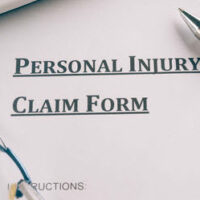Understanding Intentional Torts

In June 2017, a black South Florida man tried to withdraw money from a Wells Fargo branch in West Palm Beach. He handed his driver’s license and Visa card to the teller but was told to wait. One of the bank tellers called the Palm Beach County Sheriff’s Office, and then the police showed up. They handcuffed him and accused him of committing a felony. But all Jean Romane Elie tried to do was withdraw rent money from his bank account.
Elie filed a lawsuit against Wells Fargo alleging racial discrimination, false imprisonment and negligent training.
False imprisonment is a type of intentional tort. An intentional tort occurs when someone intentionally and deliberately injures another person or their property (unlike negligence, which happens when someone acts carelessly). Most intentional torts, like false imprisonment, are also criminal acts with criminal consequences. But those consequences don’t affect a victim’s ability to sue for civil compensation.
Florida recognizes the following intentional torts:
- False imprisonment happens when the victim is unreasonably and intentionally confined or restrained for any length of time. The confinement or restraint must be without the victim’s consent. This means that the victim wasn’t free to leave or reasonably believed he wasn’t free to leave.
- Assault happens when someone physically touches you without your consent, or threatens to physically touch you (and reasonably makes you afraid that you’re about to be assaulted). Assault is often linked to battery.
- Battery happens when someone intentionally touches you in an offensive or harmful way (without your consent). Unlike assault, you don’t have to be aware of the contact when it happens. For example, an unauthorized surgery performed on you while you’re under anaesthesia is an example of battery. “Offensive” behavior includes spitting on someone.
- Intentional infliction of emotional distress happens when a victim suffers severe mental anguish because of a defendant’s extreme and outrageous conduct. The conduct must be so outrageous that any reasonable person would feel that way.
- Trespass to land happens when someone enters private property, or remains on private land, without the owner’s consent.
- Conversion of property happens when someone interferes with a person’s personal property rights. For example, if your property is stolen or someone refuses to return your property then you can sue for conversion.
- Defamation happens when someone makes false statements about a person and damages that person’s reputation. Defamation can be written (libel) or spoken (slander). You must prove that the statement is actually false.
An experienced personal injury attorney can explain the differences between negligence and intentional torts and craft an effective litigation strategy on your behalf.
Contact Us Today
Contact a West Palm Beach personal injury attorney at The Pendas Law Firm today for a free consultation if you injured by someone’s intentional or negligent behavior. We will help recover compensation for your injuries, including medical expenses, lost wages, and pain and suffering.
The Pendas Law Firm also represents clients in the Jacksonville, Fort Myers, Fort Lauderdale, Orlando, Tampa, Miami, Daytona Beach and Bradenton areas.
Resource:
browardpalmbeach.com/news/wells-fargo-called-police-on-haitian-customer-trying-to-withdraw-money-lawsuit-says-9761734






